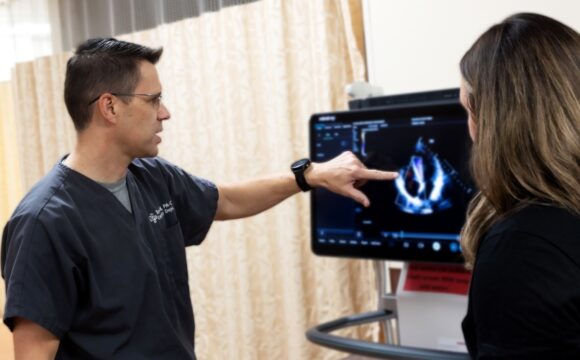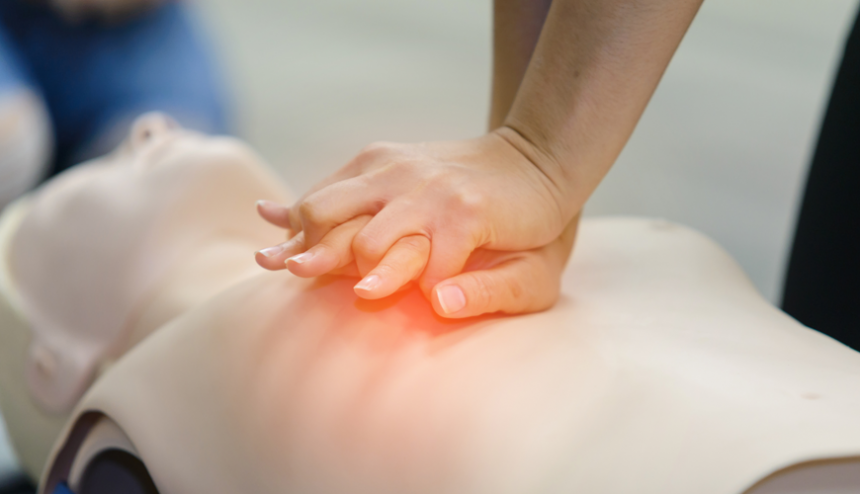 By Thomas Pahl, PA-C, Emergency Department
By Thomas Pahl, PA-C, Emergency Department
Imagine a young athlete who exercises regularly, eats the right foods, and is in excellent shape. They collapse, and no pulse is felt—what is happening?! Is it a heart attack or sudden cardiac arrest (SCA)? Think of a heart attack as a plumbing problem of the heart. Sudden cardiac arrest is an electrical problem of the heart that keeps it from pumping properly. Blood stops flowing to the brain and other vital organs. A person who has suffered SCA will suddenly collapse and lose consciousness with no pulse or breathing.
According to the American Heart Association, SCA claims more lives than colorectal cancer, breast cancer, prostate cancer, influenza, pneumonia, auto accidents, HIV, firearms, and house fires combined. It is responsible for half of all heart disease deaths. If you are with someone who experiences SCA, call 911 right away and begin CPR or just chest compressions alone until emergency personnel arrive. Survival rates can double or triple if the person receives immediate CPR or chest compressions. Without chest compressions or a shock from an automated defibrillator (AED), the SCA victim most often dies within minutes causing “sudden cardiac death.”
Although SCA is sudden and unexpected, several heart conditions can cause it. However, SCA can happen in people who have no known heart disease and without any prior symptoms.
Risk Factors for Sudden Cardiac Arrest
The same things that can increase the risk of heart disease can raise the risk of sudden cardiac arrest. These include:
- Family history of coronary artery disease
- High blood pressure
- High blood cholesterol
- Obesity
- Diabetes
- Inactive lifestyle
- Smoking
- Drug abuse
- and more
Symptoms of Heart Conditions
Heart problems leading to cardiac arrest can produce signs that should prompt you to see your doctor. These symptoms may consist of:
- Chest pain and blackouts (especially with exertion)
- Fainting
- Fluttering heart
- Becoming easily fatigued
- Weakness
- Dizziness
- Shortness of breath
Preventing SCA
There is no sure way to know if or when SCA will happen to you, so the best thing to do is try to prevent it by lowering your risk as much as possible. You can accomplish this by eating a nutritious and balanced diet, being physically active, avoiding energy drinks, not smoking or abusing drugs or alcohol, and getting regular medical checkups. All these things and more can keep your heart healthy and even save your life.
Lifesaving CPR
It is common to think, “This won’t happen to me!” You may be right, but it may happen to someone next to you. Remember, the first minutes after an event are the most important so take action immediately. Call 911, or have someone call for you while you begin CPR or chest compressions. Push hard and fast on the person’s chest — about 100 to 120 pushes a minute. If you’ve been trained in CPR, check the person’s airway. Then deliver rescue breaths after every 30 compressions. If an AED is available, the best chance for rescuing the person involves defibrillation with that device, which can help return the heart to a normal rhythm. Advanced medical treatment will continue in the ambulance and closest emergency room.
If you do not know how to perform chest compressions or CPR, sign up for a class in your community. Your knowledge and willingness to act may help save a life.


